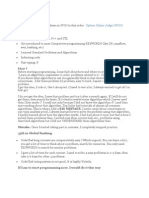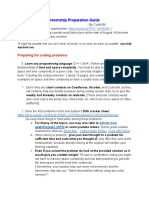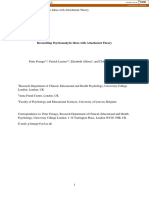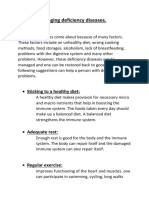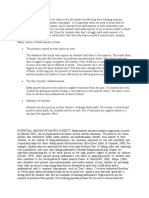0% found this document useful (0 votes)
79 views11 pages04 Effective Usage of The Course
This document provides advice for effectively studying algorithms. It notes that algorithms is a difficult course for most students. It recommends repeating materials if concepts are not understood and practicing problem solving. Problem solving skills take significant time and repetition to develop. Students should dedicate many hours weekly to practicing problems and should make earnest attempts before checking solutions. A to-do list approach can help students revisit problems they did not initially solve. Staying motivated, managing expectations, and eliminating boredom are also discussed.
Uploaded by
AmrAlaaEldinCopyright
© © All Rights Reserved
We take content rights seriously. If you suspect this is your content, claim it here.
Available Formats
Download as PDF, TXT or read online on Scribd
0% found this document useful (0 votes)
79 views11 pages04 Effective Usage of The Course
This document provides advice for effectively studying algorithms. It notes that algorithms is a difficult course for most students. It recommends repeating materials if concepts are not understood and practicing problem solving. Problem solving skills take significant time and repetition to develop. Students should dedicate many hours weekly to practicing problems and should make earnest attempts before checking solutions. A to-do list approach can help students revisit problems they did not initially solve. Staying motivated, managing expectations, and eliminating boredom are also discussed.
Uploaded by
AmrAlaaEldinCopyright
© © All Rights Reserved
We take content rights seriously. If you suspect this is your content, claim it here.
Available Formats
Download as PDF, TXT or read online on Scribd
/ 11


